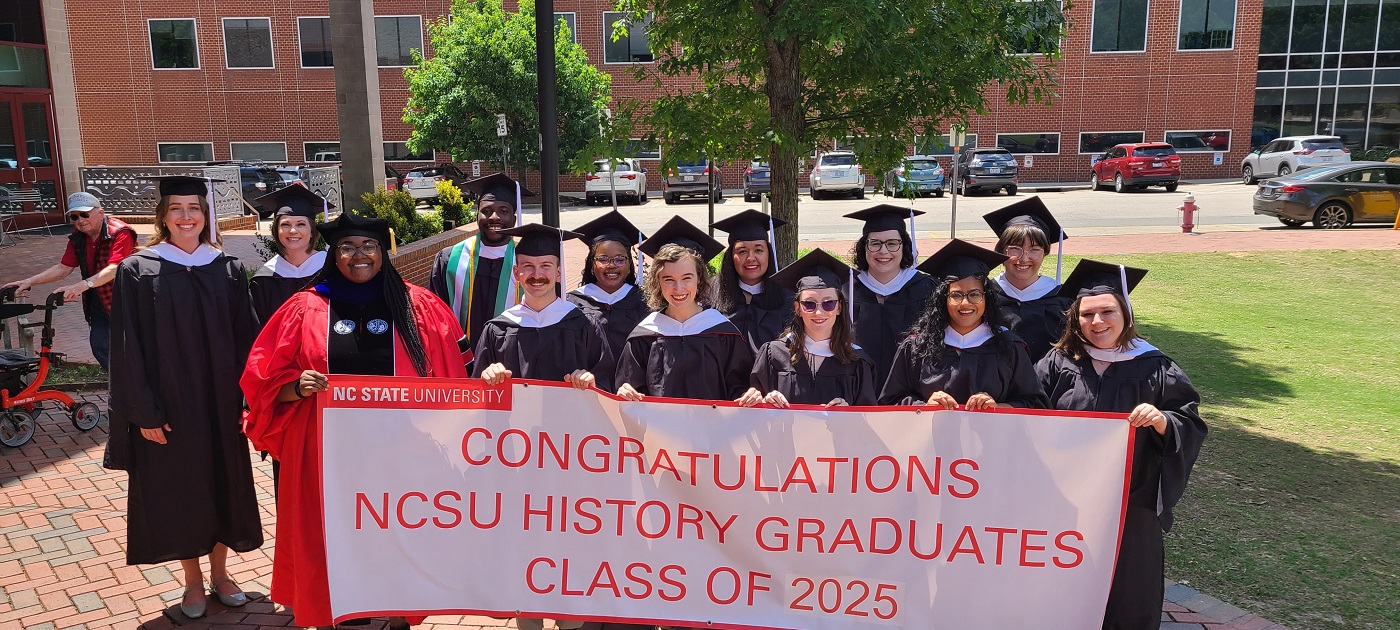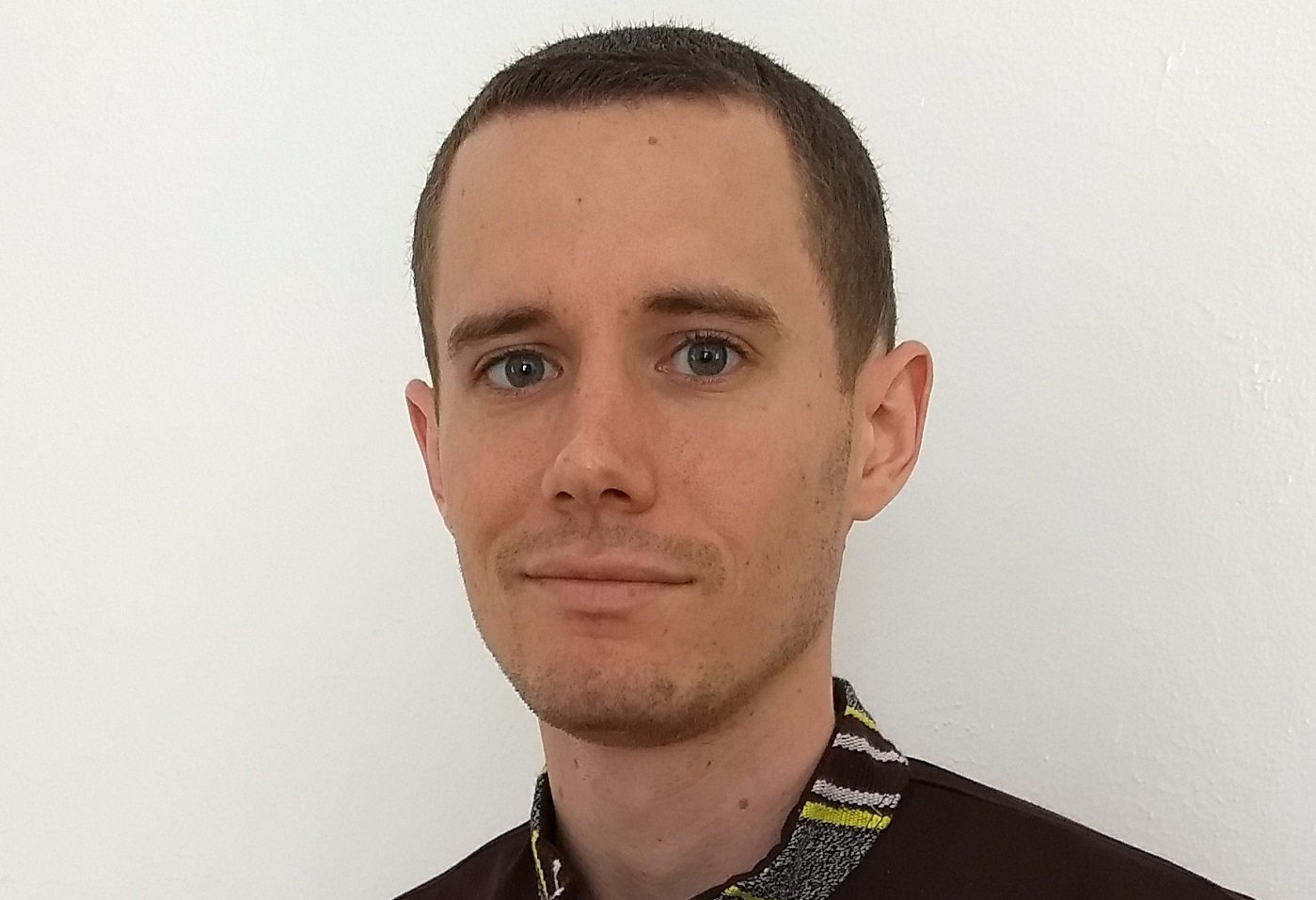Meet the Faculty: An Interview with Dr. Ajamu Dillahunt-Holloway
This year, the History Department welcomed a new Assistant Professor of History, Dr. Ajamu Dillahunt-Holloway. Dillahunt-Holloway, whose research is on 20th century African American history with a focus on the U.S. South, labor, environmental justice, and the Black freedom struggle, hit the ground running and has already delivered a keynote, attended a conference and written several articles, all while teaching courses and serving on various boards.
Tell me about your keynote which took place this past July.
 I was invited to give a keynote address in July at the luncheon of the North Carolina Black Municipal Elected Officials conference. Because I am of the belief that history can help make the world a better place, I gave a speech titled, “History in Service of Black Future.” I spoke on why history is important and why Black elected officials should take the study of the past seriously. In my remarks, I told the crowd of Black elected officials from across the state of North Carolina that what it means to be a Black elected official has already been written. I stressed to them that the Black elected official has a responsibility and has a tradition to maintain. The Black elected official has to be committed to fighting racism, economic injustices, and all forms of oppression.
I was invited to give a keynote address in July at the luncheon of the North Carolina Black Municipal Elected Officials conference. Because I am of the belief that history can help make the world a better place, I gave a speech titled, “History in Service of Black Future.” I spoke on why history is important and why Black elected officials should take the study of the past seriously. In my remarks, I told the crowd of Black elected officials from across the state of North Carolina that what it means to be a Black elected official has already been written. I stressed to them that the Black elected official has a responsibility and has a tradition to maintain. The Black elected official has to be committed to fighting racism, economic injustices, and all forms of oppression.
I would say it was well received and it came at a time where sanitation workers in Durham and Rocky Mount and in Raleigh were fighting for better pay and working conditions. I urged the elected officials that the tradition that made it possible for them to be where they are requires them to stand with workers. We praise Dr. King often but I reminded the crowd that he was assassinated supporting sanitation workers in Memphis, Tennessee. If we say we are honoring his legacy we must honor his actions. We are in an important time for organized labor and I believe the Black elected officials should be supporting workers.
And the sanitation works are unionized?
They’re part of UE Local 150 which is the North Carolina Public Service Workers Union. UE has chapters at the city level, chapters on university campuses and statewide mental health workers in the Department of Health Human Services. UE-150’s history is intertwined with the organization I am writing a book on, Black Workers for Justice
Tell me about the conference you attended in Florida
Yes, it was in Jacksonville, Florida from September 20th to the 24th. Florida has become the site of attacks on African American history so while many organizations decided to move away from Florida, The Association for the Study of African American Life and History (ASALH) decided to meet there and fight for Black history. ASALH was founded by Carter G. Woodson, who is the father of Black history. Woodson was the second African American to graduate from Harvard with his PhD in History (W.E.B Du Bois was the first). As my mentor and advisor Dr. Pero Dagbovie reminds us, Woodson played an instrumental role in ensuring Black history was popularized and accessible to teachers, social organizations, churches, and countless other community organizations. Instead of working as a professor, Woodson committed his life to popularizing African American History and using it to uplift the African American community. Woodson believed, “If a race has no history, if it has no worthwhile tradition, it becomes a negligible factor in the thought of the world, and it stands in danger of being exterminated.”
 It was very appropriate for ASALH to be in Jacksonville. The conference theme this year was Black Resistance. I presented two sessions: One was on the History Department at North Carolina Central University where I received my B.A. That session was titled “An Unwavering Commitment to the Black Past: The Unique Story of North Carolina Central University’s History Department,” which is about to celebrate 85 years. On the panel, we talked about our experience in the department – intellectually, mentorship, rigor – and how our department has been able to produce over 100 PhDs since its founding.
It was very appropriate for ASALH to be in Jacksonville. The conference theme this year was Black Resistance. I presented two sessions: One was on the History Department at North Carolina Central University where I received my B.A. That session was titled “An Unwavering Commitment to the Black Past: The Unique Story of North Carolina Central University’s History Department,” which is about to celebrate 85 years. On the panel, we talked about our experience in the department – intellectually, mentorship, rigor – and how our department has been able to produce over 100 PhDs since its founding.
I did another session on North Carolina and resistance and the role that North Carolina has played in an effort to make the world a better place. I look at how North Carolina was at the center of the student movement, the fight to free political prisoners, the fight against economic exploitation, and the fight against environmental racism. The panel examined how events that happened in North Carolina not only impacted our state but had regional and national and sometimes even international impact.
Overall, the conference was great. I saw a lot of scholars in the field and there was an event held at James Weldon Johnson Park, opposing the banning of African American books by the state of Florida and as a form of resistance, people read excerpts from banned books.
I hear you have several articles that have recently been published or are coming out soon?
 I have an article that was just published in the Journal of African American History, which is the oldest and most prestigious Journal in the field of African American History. It was founded by Carter G. Woodson in 1916. My article is titled “Victory through Struggle: The History of Economic Justice and Environmental Justice in North Carolina” and it looks at an effort in 1988 to fight a plant closing in Rocky Mount and how that struggle against the plant closing turned into a struggle for environmental justice. It basically argues that North Carolina not only birthed the environmental justice movement in 1982, in 1988, it expanded the movement’s area of concentration to include a relationship to the struggle for economic justice and workers rights.
I have an article that was just published in the Journal of African American History, which is the oldest and most prestigious Journal in the field of African American History. It was founded by Carter G. Woodson in 1916. My article is titled “Victory through Struggle: The History of Economic Justice and Environmental Justice in North Carolina” and it looks at an effort in 1988 to fight a plant closing in Rocky Mount and how that struggle against the plant closing turned into a struggle for environmental justice. It basically argues that North Carolina not only birthed the environmental justice movement in 1982, in 1988, it expanded the movement’s area of concentration to include a relationship to the struggle for economic justice and workers rights.
I have another article being published in The Journal of West African History that I co-authored with some of my colleagues at Michigan State about LGBT organizing in West Africa and Nigeria. I also have an article just come out in Gastronomicathe Journal of Food Studies called “Fertile Ground Food Cooperative: Building a Black-Led Grocery Store in a Southern City” which is an interview with Erin McClellan, the founding member and Board Chair of Fertile Ground Food Cooperative here in Raleigh.
In 2024, I have an essay coming out in the Bloomsburg Encyclopedia on social justice and education.
How are you classes going?
Teaching has been good. The students have an impressive and encouraging curiosity about the world. They read. They ask questions. And by doing those things it takes the classroom discussion to the next level. I’m hoping that the class is having a positive impact on them because it’s not just history majors but STEM majors and other majors who I’m hoping to recruit to either minor or double major in history. In the graduate class I teach, African American Public History, we will be doing oral history interviews with people who were impacted and inspired by Raleigh’s first African American bookstore, Freedom Books, which was run by my grandparents from 1984 to 1994. It was a family business, which, unfortunately, closed before I came on to the earth in the 1990s.
How do you like being here at NC State?
I’ve enjoyed being in the department – faculty have been welcoming, supportive. It really has felt like a home environment. You know, I’m born and raised in Raleigh so a lot of it is personal and of course professional, but to be here and to be able to bike to work – I am honored. I take very seriously the mandate to Think and DO. I’m just happy to be here. I want to continue to do things that have a positive impact on our department, students, university, state, country and world.
Ajamu Dillahunt-Holloway has recently been appointed to the Historic Resources and Museum Advisory Board for the City of Raleigh and is on the North Carolina Environmental Justice Network, Democracy North Carolina and the Inter- Religious Foundation for Community Organization. You can learn more about Dr. Ajamu Dillahunt-Holloway on his faculty profile page.
- Categories:



